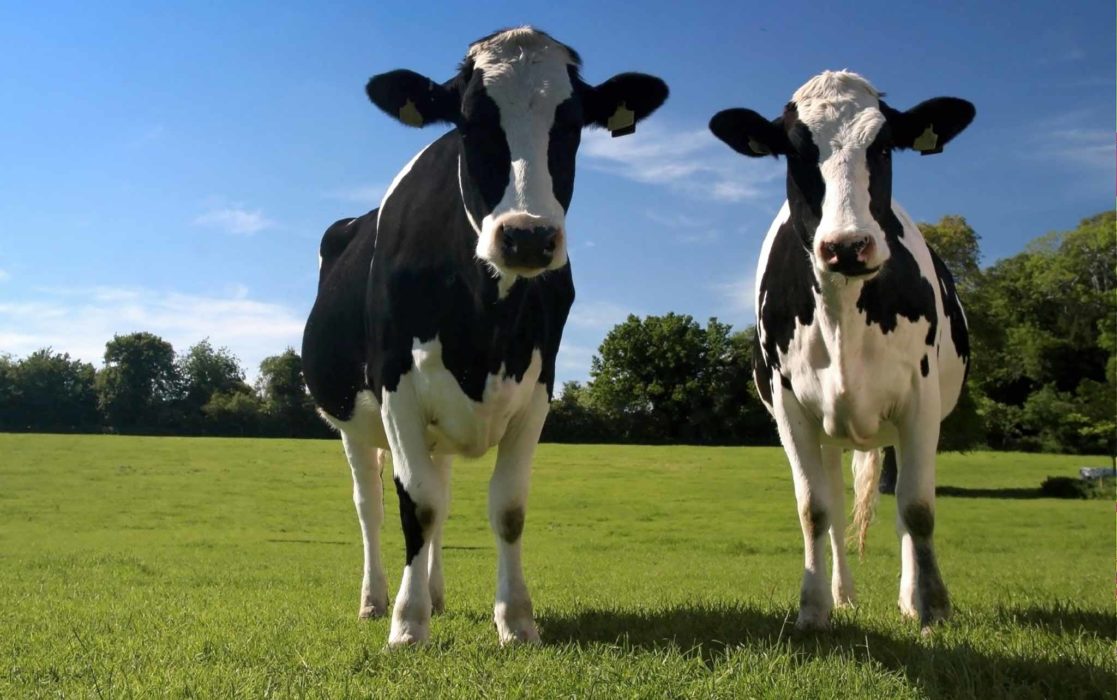“THEY SAY THAT HAD there been a spiritual world they would have sensed it,” ‘Abdu’l-Bahá remarked at the Dublin Inn on August 5, 1912. He was talking about modern materialist philosophers. “If inability to sense constitutes proof of perfection,” he joked, “the cow must be the greatest philosopher, for she does not realize anything beyond the animal world.”
Although ‘Abdu’l-Bahá’s take on materialist philosophy that day was jovial, he generally treated the subject with great seriousness. The philosophical schools he appeared to be addressing were the materialists of the Enlightenment, the German dialectical materialists of the nineteenth century, and perhaps empiricism and naturalism which were influential in Anglo-American philosophy.
French materialist philosophers like Denis Diderot (1713–1784) postulated a universe consisting of nothing but matter. Knowledge and reason were to be built on what could be acquired through direct perception by the five senses; religion was a dangerous fiction. A century later, German Ludwig Feuerbach (1804–1872) characterized God as a projection of human consciousness, of human needs, and of human nature. In his magnum opus, The Essence of Christianity, he wrote: “God is man writ large.”

‘Abdu’l-Bahá disagreed. On June 9, 1912, at Russell Conwell’s Baptist Temple in Philadelphia, he argued that “There have been two pathways in the world of humanity, one the natural or materialistic, the other the religious or spiritual.” The materialistic, he said, “is the pathway of the animal realm.” “One of the strangest things witnessed is that the materialists of today are proud of their natural instincts and bondage.”
‘Abdu’l-Bahá founded his argument on bold dichotomies between humankind and the natural world: “Nature is inert; man is progressive. Nature has no consciousness; man is endowed with it. . . . Nature is incapable of discovering mysteries or realities, whereas man is especially fitted to do so.” “Man can voluntarily discontinue vices,” he said, “nature has no power to modify the influence of its instincts.” “How strange then it seems that man, notwithstanding his endowment with this ideal power, will descend to a level beneath him.”
In New York, back on April 19, Kate Carew of the New York Tribune had asked ‘Abdu’l-Bahá if he thought the attention Americans paid to material things signaled a lack of social development. “Your material civilization is very wonderful,” he had answered. “If only you will allow divine idealism to keep pace with it there is great hope for general progress.”

But ‘Abdu’l-Bahá was far less complimentary toward the Parisians. During his visit to France in 1911 he made the incessant materialism he saw there the subject of one of his final speeches in the city. He lamented that “Men are becoming like unto beasts that perish, for we know that they have no spiritual feeling — they do not turn to God, they have no religion. These things belong to man alone, and if he is without them he is a prisoner of nature, and no whit better than an animal.”
After ‘Abdu’l-Bahá finished his talk in Dublin, New Hampshire, on August 5, a group of friends invited him to ride in their automobile. They were driving through the rolling hills surrounding the town when a herd of cattle ran into the road. The cows saw the car, and then fled in all directions. Those riding in the car with ‘Abdu’l-Bahá cried out: “Oh Master, see the crowd of philosophers. How frightened they are running away from us.”
‘Abdu’l-Bahá, it was reported, laughed so hard that he tired himself out.






